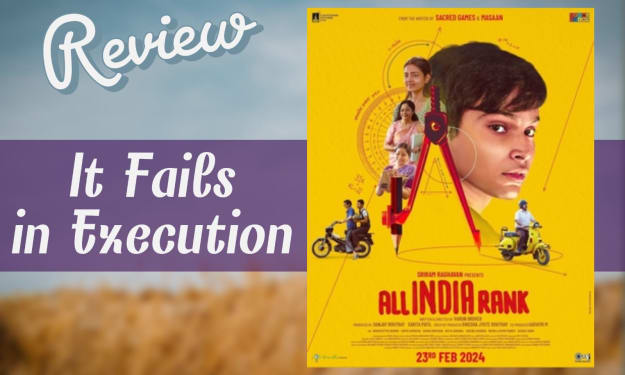Scarlett Johansson's Disney Lawsuit Explained
Here's What's Happening

We all want to be accurately paid for the work we do, right? We all want to make sure we are working a job where we know the terms of the contract and those terms are not broken in any way, right? Well, with the rise of streaming TV, actors and actresses are finding that their contracts may not always be what they used to be. Meaning, they might not be making the money that they should be making from their movies.
In spring 2020, Disney+ released Onward onto their streaming platform, shortly after it was released in theaters. Onward had the unlucky release of being out just a week or two before most states shut down due to the Covid-19 pandemic. Disney had to pull the movie from theaters, since they were all closed, and decided to release it way early, for free, on Disney+. Which, made a lot of people very happy.
RELATED: Top 5 Non-MCU Marvel Movies
In the subsequent months and once the theaters opened back up, Disney decided that they would do a sort of hybrid release. The first of these was Disney’s live action Mulan. It was released in theaters, but then also released on Disney+ under premiere access. This meant that even if the viewer was paying for Disney+, they had to pay an additional $30 to be able to watch Mulan on Disney+ before it was officially released onto DVD/Blu-Ray/Streaming platform. This ensured that Disney still got money from the theaters and made it easier for those who didn’t want to go to the theaters yet to still watch Mulan at the same time as they would in theaters. And Disney still got extra money from the premiere access. They have also done this with Raya and the Last Dragon, Cruella, and, most recently, Black Widow.
However, with this plan of Disney’s, they forgot one tiny thing: how to work streaming into the payment of those who work and act in the movie(s). This has led to actress Scarlett Johansson filing a lawsuit against Disney, who, of course owns Marvel, for allegedly breaching her contract by releasing Black Widow on its streaming service, Disney+. At the end of July, Scarlett officially filed a lawsuit in the Los Angeles Superior Court. The suit claims that releasing the film on Disney+ instead of just in theaters broke the agreement between the star and Disney. Scarlett Johansson and Disney agreed previously that her salary for the film would largely be based on what the film makes in the box office. This is completely normal for a contract.
The suit that Scarlett Johansson filed states this:
“To maximize these receipts, and thereby protect her financial interests, Ms. Johansson extracted a promise from Marvel that the release of the picture would be a 'theatrical release. As Ms. Johansson, Disney, Marvel, and most everyone else in Hollywood knows, a 'theatrical release' is a release that is exclusive to movie theatres. Disney was well aware of this promise, but nonetheless directed Marvel to violate its pledge and instead release the picture on the Disney+ streaming service the very same day it was released in movie theatres."
Disney responded to the lawsuit with this comment:
“There is no merit whatsoever to this filing" and that the suit is "especially sad and distressing in its callous disregard for the horrific and prolonged global effects of the COVID-19 pandemic. Disney has fully complied with Ms. Johansson's contract and furthermore, the release of 'Black Widow' on Disney+ with Premier Access has significantly enhanced her ability to earn additional compensation on top of the $20 million she has received to date.”
The rise of streaming releases on the same day as theatrical releases is on the rise due to the COVID-19 pandemic and the growth in streaming platforms. On Disney+, Marvel is the biggest blockbuster company to do this with Black Widow. However, several other platforms have done the same thing, albeit a little differently. HBO Max, most recently, had James Gunn’s The Suicide Squad released simultaneously in theaters and on their streaming service. And interestingly enough, HBO Max is not charging extra like Disney is. The first film that HBO Max did this type of release with was with Wonder Women 1984, which they also did not charge extra for on their streaming platform. Is this the future of feature film releases? Who knows? But it is definitely the trend so far. Which does beg the question of how it factors into the contracts of the actors and actresses and everyone who works on the films.
With Black Widow, the Disney+ release would not have been in the contract at all since Black Widow was supposed to originally be released in May of 2020. With the theaters still shut down through the US and most of the world, Disney pushed back that release date instead of just releasing solely on Disney+. They knew they could still make money with a theatrical release when they could release it.
In March of 2021, Disney announced that they would be releasing Black Widow simultaneously on Disney+ (for an extra charge) and in theaters. Which was huge. On July 9, the official release, the highly anticipated film brought in $80 million in North America from the theater and $60 million from Disney+. Unfortunately though, the film’s momentum was not as good as some of the other Marvel films, and has only made roughly $318 million worldwide, which is not huge compared to the other Marvel films.
However, as Scarlett Johansson pointed out in her lawsuit, the studios need to make sure that they are honoring contracts and paying the creatives who work on the film what they are due. Warner Bros. reportedly did pay Gal Gadot (Wonder Women) and director Patty Jenkins each more than $10 million extra since they released the film simultaneously on HBO Max in December 2020. But this does not seem to be what Disney is doing with their contracts when releasing films on Disney+.
Scarlett Johansson’s lawyer, John Berlinski, pointed out:
“It's no secret that Disney is releasing films like Black Widow directly onto Disney+ to increase subscribers and thereby boost the company's stock price — and that it's hiding behind COVID-19 as a pretext to do so. But ignoring the contracts of the artists responsible for the success of its films in furtherance of this short-sighted strategy violates their rights and we look forward to proving as much in court. Surely not be the last case where Hollywood talent stands up to Disney and makes it clear that, whatever the company may pretend, it has a legal obligation to honor its contracts.”
This isn’t the first time that a film/TV company has ignored contracts and not taken into consideration payment for the creatives. In November 2007 - February 2008, the Writer’s Guild of America, 12,000 film and TV writers, went on strike due to demanding increase funding for writers and making sure that they were paid correctly for their services and creative projects/writing/etc. Among other things, NBC had started figuring out that they could release extra content for their TV shows on their website. This started during the era of The Office. The problem is, the content that they were releasing on there, small webisodes and the like, were not included in the contracts for the writers or creatives. Meaning, they didn’t get paid (or at least paid their due) for what was being streamed to the public. The writers didn’t like this (among other things), and they went on strike until they got what they wanted, and eventually, they came to a good agreement.
Will we see something like this with the rise of streaming releases? Who knows? There have already been people upset with Disney for releasing feature films on Disney+, but not in theaters. Perhaps Scarlett Johansson’s lawsuit will open up the conversation of fair wages, following contracts, and making sure to include fair payment when movies will be released on streaming platforms, as well as, in theaters.
Whatever the case ends up being, the question does need to be answered: will Disney and the other companies make sure to write out contracts and pay accordingly if they keep releasing films theatrically and through their streaming services simultaneously?
READ NEXT: Why Tobey Maguire Is The Best Spider-Man
Written By Elizabeth Dresdow
Source(s): CNN, Office Ladies, Wikipedia
Syndicated From Culture Slate






Comments
There are no comments for this story
Be the first to respond and start the conversation.